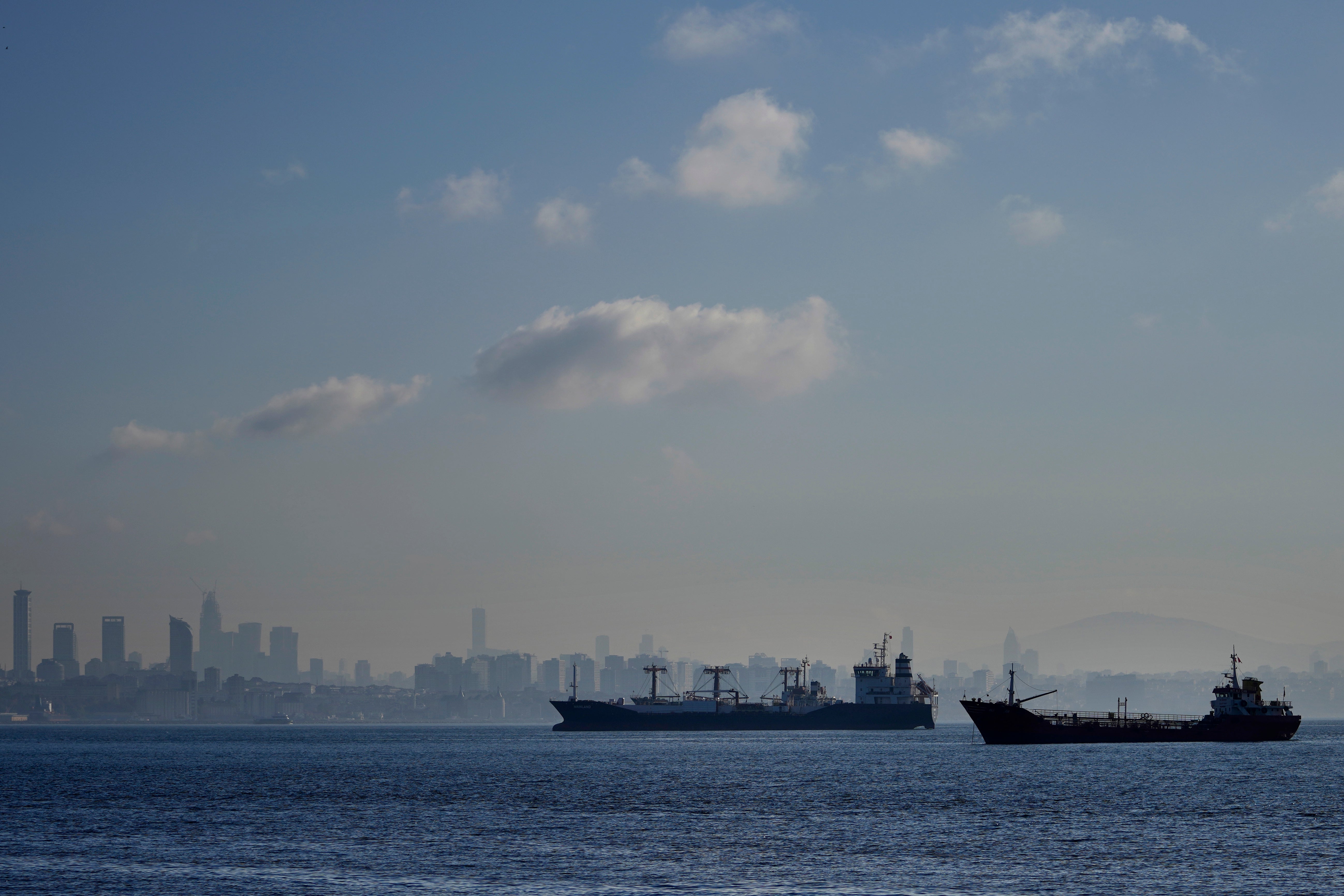UN, Russia hold talks on extending wartime grain deal
Top Russian and U.N. officials are holding talks in Switzerland to try to iron out the extension of a deal allowing Ukrainian grain shipments and Russian food and fertilizer exports

Your support helps us to tell the story
From reproductive rights to climate change to Big Tech, The Independent is on the ground when the story is developing. Whether it's investigating the financials of Elon Musk's pro-Trump PAC or producing our latest documentary, 'The A Word', which shines a light on the American women fighting for reproductive rights, we know how important it is to parse out the facts from the messaging.
At such a critical moment in US history, we need reporters on the ground. Your donation allows us to keep sending journalists to speak to both sides of the story.
The Independent is trusted by Americans across the entire political spectrum. And unlike many other quality news outlets, we choose not to lock Americans out of our reporting and analysis with paywalls. We believe quality journalism should be available to everyone, paid for by those who can afford it.
Your support makes all the difference.Top Russian and U.N. officials held talks in Switzerland on Friday to try to iron out the extension of a deal allowing Ukrainian grain shipments and Russian food and fertilizer exports, with just over a week left before the wartime agreement meant to ease a global food crisis is set to expire.
U.N. humanitarian chief Martin Griffiths and U.N. trade chief Rebeca Grynspan, who has been in charge of the Russian side of the agreement, were meeting in Geneva with a Russian team led by Deputy Foreign Minister Sergey Vershinin.
“This discussion, it is hoped, should advance progress made in facilitating the unimpeded export of food and fertilizers originating from the Russian Federation to the global markets,” U.N. Geneva spokeswoman Alessandra Vellucci told reporters.
The deal is critical because Ukraine and Russia are major suppliers of wheat, barley, sunflower oil and other food, especially to parts of Africa, the Middle East and Asia where many people are already going hungry and food prices have surged. A failure to renew the wartime agreement has raised fears that a global food crisis would get worse.
U.N. officials say the meeting will focus on “full implementation” of two separate agreements signed with Russia and Ukraine in Istanbul on July 22. Russia briefly suspended its participation in the deal two weeks ago, alleging a Ukrainian drone attack on its Black Sea fleet in Crimea.
Russian authorities have said they are dissatisfied with the implementation of the accord and that they haven't yet decided whether to extend the agreement brokered by the U.N. and Turkey after it is set to expire on Nov. 18.
There are no U.S. or European Union sanctions on food and fertilizer shipments, but Russian diplomats have cited problems getting financing and insurance for ships and finding ports where Russian vessels can dock.
Grynspan, who heads the U.N. Conference on Trade and Development, told the Security Council last week that Ukraine and Russia provide around 30% of the world’s exported wheat and barley, 20% of its corn, and over 50% of its sunflower oil. Russia is also the world’s largest exporter of fertilizers, accounting for 15% share of global exports.
Ukrainian grain shipments from the Black Sea ports have topped 10 million metric tons, the U.N. has said, and an end to the deal could have a ripple effect on food prices, availability and security in many parts of the world.
“Nobody, I think, wants to see that there is a termination of the deal. I think the situation would be really difficult, and the implications would be very serious,” said Boubaker Ben Belhassen, who heads the trade and markets division of the U.N.’s Food and Agricultural Organization.
“In the short term, certainly prices will have to respond and they will increase, especially, for example, for wheat, for maize, and also for sunflower seed oil,” he told reporters during a U.N. briefing Friday.
___
Follow all of AP’s coverage on the food crisis at https://apnews.com/hub/food-crisis and the war in Ukraine at https://apnews.com/hub/russia-ukraine.